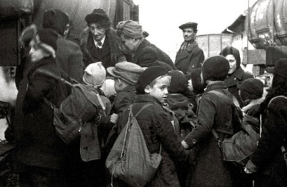OSWALD MOSLEY AND THE RISE OF BRITISH FASCISM

Thousands of men and women were gathered on the streets of London on 4 October 1936. They were textile workers, dockers, community leaders, socialists, communists, local Jewish residents and everything between. In front of them were the Metropolitan Police and behind them members of the British Union of Fascists (BUF), the party of Sir Oswald Mosley, who had planned to march through the streets of East London only to find their route barricaded. “M-O-S-L-E-Y, we want Mosley,” chanted his black-shirt wearing followers. “So do we, dead or alive,” came the retort of the assembled protestors.
This was the stage for what would come to be known as the Battle of Cable Street, an iconic clash between fascists and the residents of East London who had been tormented and provoked by the group for the last four years. While this would not mark the end of fascism in Britain, it has come to be seen as a final nail in the coffin of public opinion for the BUF and for Mosley who for so many years had been a popular, if eccentric, public figure.
TO THE MANOR BORN
Oswald Ernald Mosley was born on 16 November 1896 to Sir Oswald Mosley, 5th Baronet and Katharine Maud Edwards-Heathcote. After his parents split, he was raised by his mother and lived with his grandparents in the stately Apedale Hall for many years. In January 1914 he attended the Royal Military College, Sandhurst, but was expelled after only a few months for getting
You’re reading a preview, subscribe to read more.
Start your free 30 days



